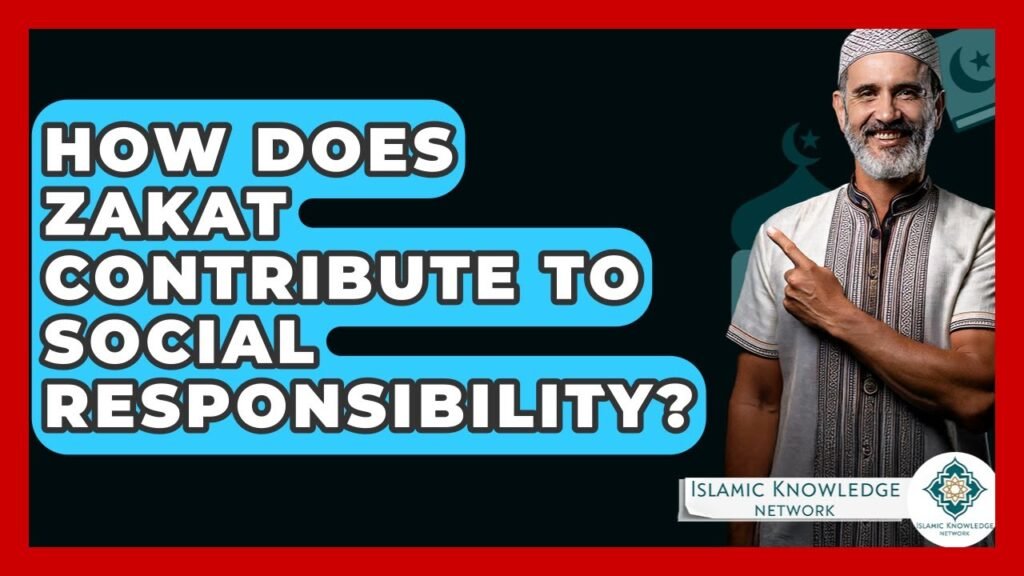You are here to read: How Does Zakat Enhance Social Responsibility in Communities? – A Thoughtfully Written Guide Offering Spiritual Wisdom and Travel Advice for Every Pilgrim who is going on holy journey of Hajj or Umrah.
How Does Zakat Contribute To Social Responsibility? – Islamic Knowledge Network
In the heart of Islamic teachings lies the institution of Zakat, an obligatory form of almsgiving that goes beyond mere charity. As one of the Five Pillars of Islam, Zakat not only cultivates spiritual growth but also fortifies social responsibility within communities. This vital practice encourages individuals to share their wealth, fostering a culture of compassion and support for the underprivileged. By redistributing resources, Zakat plays a crucial role in alleviating poverty, empowering marginalized groups, and promoting social justice.
At Airlink Hajj and Umrah, we understand that the essence of Islam extends beyond rituals and worship into our everyday lives, including our economic interactions. Our commitment to providing you with the latest updates on Hajj and Umrah is intertwined with our mission to educate about Islamic tenets like Zakat. Join us in exploring how Zakat not only fulfills a religious obligation but also strengthens communal ties and encourages collective well-being, embodying the very spirit of social responsibility that Islam advocates. Through our blog, stay informed and deepen your understanding of the profound impact that Zakat has on individuals and society alike.
How Does Zakat Enhance Social Responsibility in Communities?
Zakat, the obligatory form of almsgiving in Islam, plays a pivotal role in enhancing social responsibility within communities. By redistributing wealth among those in need, Zakat fosters a sense of unity and shared responsibility. This practice encourages wealthier individuals to contribute a portion of their earnings, thereby reducing economic disparities and empowering impoverished families. When people actively participate in giving Zakat, they cultivate a collective commitment to social welfare that transcends individual interests.
Moreover, Zakat encourages a culture of community engagement and altruism. Families are more likely to come together to discuss their charitable contributions, inspiring children to learn about the values of empathy and social justice early on. This strengthened bond often leads to more significant community projects aimed at alleviating poverty, such as education initiatives, health care support, and feeding programs.
In addition to creating a more equitable society, Zakat enriches the spiritual lives of givers. Engaging in this act of charity aligns with the principles of Hajj and Umrah, as both emphasize the importance of communal solidarity and generosity. For further insights into how acts of worship like Zakat can impact social responsibility, explore our blog on airlinkhajjandumrah.com for the latest updates on Hajj and Umrah.
FAQ on How Does Zakat Enhance Social Responsibility in Communities?
-
What is Zakat, and why is it important for social responsibility?
Zakat is a form of almsgiving in Islam, representing a religious obligation for Muslims. It enhances social responsibility by redistributing wealth, supporting the needy, and fostering community welfare.You're at the middle of this awesome post at AirlinkHajjandUmrah.com through: How Does Zakat Enhance Social Responsibility in Communities?. Keep reading, it gets better!
-
How does Zakat promote economic equity within communities?
Zakat directs funds from those who can afford to give to those in need, reducing income inequality and providing essential support for basic needs, education, and healthcare. -
In what ways can Zakat foster collaboration among community members?
Zakat encourages individuals to work together to identify local needs, organize fundraising efforts, and collaboratively support charitable initiatives, strengthening community bonds.
-
What role do social organizations play in the distribution of Zakat?
Social organizations often act as intermediaries to ensure that Zakat funds are distributed effectively, efficiently, and transparently, maximizing their impact within the community. - Can Zakat contribute to long-term community development?
Yes, when allocated towards sustainable projects such as education, vocational training, and healthcare, Zakat can empower communities, fostering long-term development and self-sufficiency.
That wraps up How Does Zakat Enhance Social Responsibility in Communities?. Thanks for sticking with us till here! Share this: How Does Zakat Enhance Social Responsibility in Communities? with your friends.
Check our homepage at Air Link Hajj & Umrah for more awesome updates.
Some interesting posts are: 1: Umrah Mubarak, 2: When is Umrah closed 2026?, 3: When does Umrah start after Hajj 2026?
Mushu, an experienced Saudi Arabia traveler and writer, shares insightful tips and spiritual reflections to enhance Hajj and Umrah journeys for fellow pilgrims. He has been to Makkah and Madina from 2016 to 2023 many times and his posts will reflect this.







